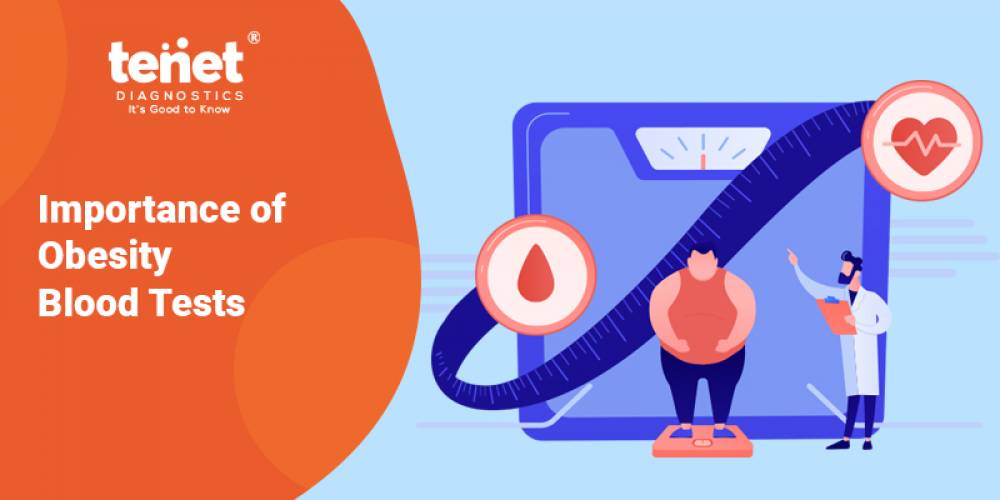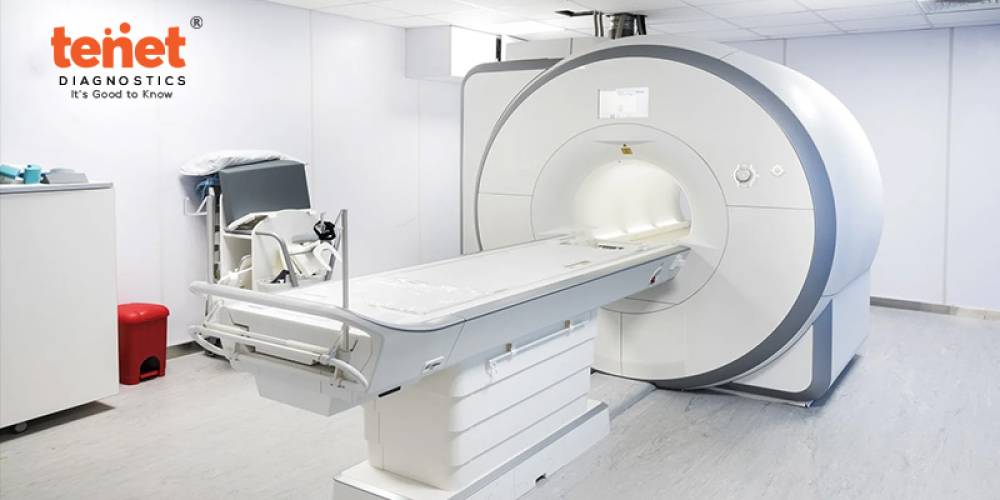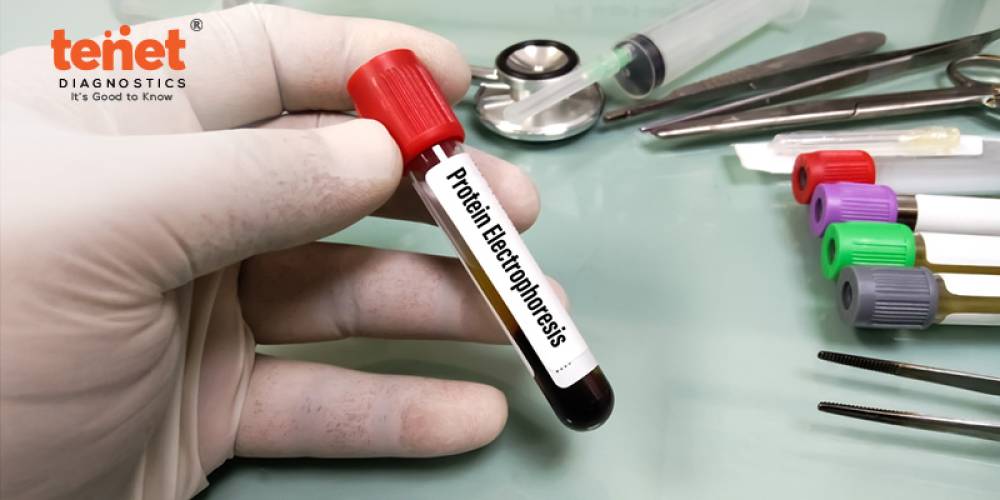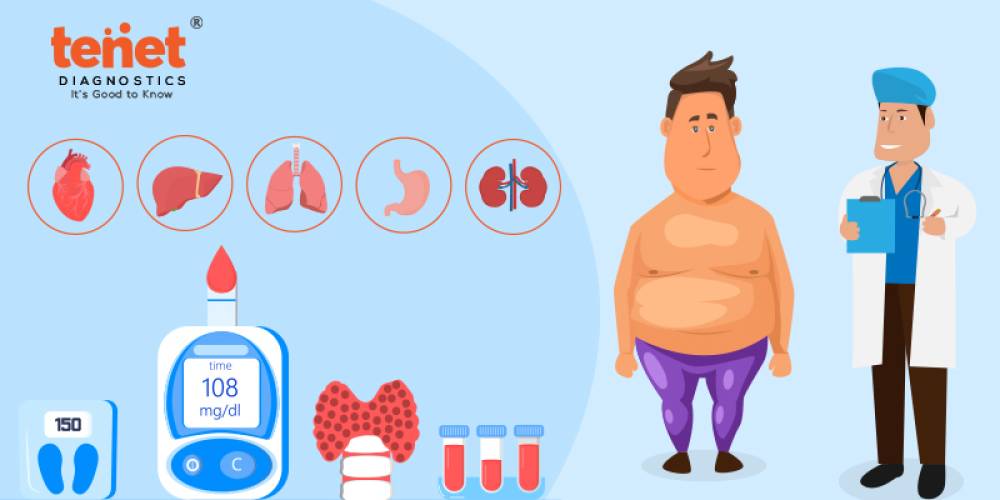Our physical well-being is impacted by obesity, a global health issue of epidemic proportions, and our general health is also significantly at danger. This insightful blog delves into the important subject of obesity blood tests and explains why blood testing is key for comprehending, controlling, and treating this complicated problem. We'll provide you with a thorough understanding of obesity, from illuminating its underlying causes and aggravating elements to outlining efficient cures and lifestyle changes.
Obesity blood tests at Tenet Diagnostics Centers
Obesity profile tests are quite essential in understanding the severity of the situation. The following tests are carried out to determine the same:
1. Complete Blood Picture (CBP) test
The Complete Blood Picture (CBP) is a typical blood test that gives thorough details on the cellular components of your blood. It is obtained using EDTA as an anticoagulant. An alternative name for this test is Complete Blood Count (CBC). One of the most often requested blood tests for an overweight child, it providesimportant information about thier general health and wellbeing. To spot any departures from the expected range, CBP results are often compared to reference ranges. Values that are abnormal may point to underlying health problems that need more research or treatment.
2. Complete Urine Examination
The term "urine test for obesity" also known as "complete urine examination" or "CUE" refers to a medical test that does not meet any established criteria for diagnosing obesity. It is actually a thorough urine study that reveals details about your overall health impacted by obesity, including kidney function, hydration levels, and the presence of specific compounds in the urine.
3. Cortisol Test
A cortisol test determines the amounts of cortisol, an adrenal gland hormone, in your blood, urine, or saliva. The hormone cortisol is essential for many biological processes, including the control of metabolism, immunological response, and stress response. Testing for cortisol helps identify and keep track of a wide range of medical illnesses, such as problems with the adrenal glands, problems brought on by stress, and hormonal imbalances. It is crucial to adhere to your doctor's preparation recommendations because elements like medication and stress might affect cortisol levels and the precision of the test results.
4. Thyroid profile test
A series of blood tests called a thyroid profile test, also called a thyroid function test, are used to evaluate the condition and operation of the thyroid gland. Hormones produced by the thyroid gland, which is situated in the front of the neck, are vital for controlling a number of internal processes, including metabolism, energy production, and temperature regulation. This is one of the most common tests in obesity screening for adults.
5. Insulin profile test
A blood test that evaluates the insulin level in your system after fasting is called an insulin fasting test, often known as a fasting insulin test. The pancreas secretes the hormone insulin, which is essential for controlling the body's blood sugar (glucose) levels. This examination reveals crucial details about how well your body contains insulin and glucose. The laboratory's reference range is often considered when interpreting the results of an insulin fasting test. Low fasting insulin levels may signify increased insulin production, possibly brought on by certain medical disorders or drugs, whereas high fasting insulin levels may indicate insulin resistance.
6. Lipid profile test
A lipid profile test, often known as a cholesterol panel or lipid panel, evaluates your system's different kinds of lipids (fats). These lipids, including triglycerides and cholesterol, HDL, LDL and VLDL are necessary for your body to function, but they can potentially exacerbate cardiovascular illnesses in high concentrations. A lipid profile test can tell you much about your risk of developing heart-related diseases and how healthy your heart is.
Infographic: Obesity Blood Tests

Final Words
In conclusion, blood testing for obesity is an essential diagnostic tool in the fight against the rising obesity epidemic. They provide crucial direction for individualized treatment regimens and shed insight into the underlying causes and associated health hazards. These tests enable healthcare providers and patients to decide on lifestyle changes, dietary adjustments, and medicinal interventions by evaluating variables like insulin resistance, inflammation, and lipid profiles. Regular blood testing remains crucial to achieving better health, improved well-being, and decreased risk of obesity-related problems as we navigate the complex obesity landscape.







